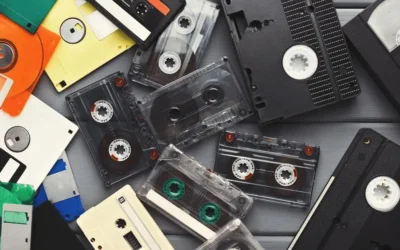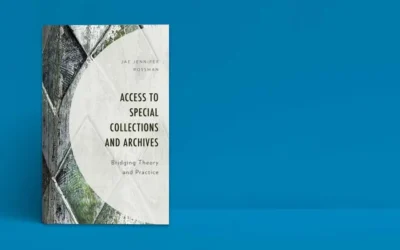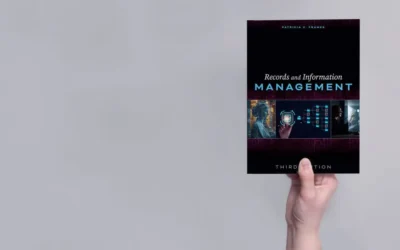Interview with the Expert: Marketing in Special Libraries, Dr. Rajesh Singh
Lauren Hays
Dr. Rajesh Singh was one of my professors while I was studying for my Master of Library Science degree. His approach to marketing has always stuck with me. I interviewed him to learn more about his current thoughts on marketing.
Lauren: Dr. Singh, please introduce yourself to our readers.
Rajesh: My name is Rajesh Singh. I am a faculty member, associate professor at St. John’s University in the Library and Information Science Program. Prior to that, I had the opportunity to work at Emporia State University and at the University of British Columbia. I did my Doctorate from Finland and it was about marketing culture in libraries.
Lauren: Why do you think marketing is important for libraries, especially special libraries?
Rajesh: Marketing is important for establishing community connection. It is important for the visibility of libraries. Unless libraries put conscious effort into outreach to get connected with potential users and patrons, people will have a hard time figuring out why libraries exist and what they offer. It is particularly important in today’s environment where people’s attention span is very limited—even more limited than goldfish! Sad, but true. So that means there are significant challenges for libraries in terms of engaging people’s attention. And that won’t be the only thing. The first challenge is how do we get people’s attention. The second challenge is how do we sustain that attention so that people would like to come to the library over time. Marketing is important for libraries to demonstrate relevance to people, to the community.
Why is it especially relevant for special libraries? Because special libraries tend to be small, and in many cases, their users are very advanced and sophisticated and may not need librarians to help them find information. Of course, there are exceptions to this.
So, there are particular challenges in a small entity. Let’s talk about small law firms. It can be challenging for a solo librarian to demonstrate the library’s relevance to people, to attorneys, to other clientele. Small libraries have challenges. Public libraries have different kinds of challenges. And academic libraries have different kinds of challenges. Context matters.
But at the end of the day, it is all about the visibility of libraries. It is necessary to demonstrate the library’s relevance to its community of users and potential users.
Lauren: What are some ways libraries can effectively market their resources and services?
Rajesh: It depends. It depends on context. I would reiterate, I would say what Peter Drucker said, that the beginning and the end point for any library is to understand your customer. That starts from understanding customer needs and demand, or in other words, communities’ needs and demands. Once we have figured that out, it is easier to describe those requirements, and to connect with and engage community members. It is equally important to understand who our non-users are so that we can bring them into libraries. It is not easy, but we have to understand where community members participate.
Some of us would like to go to libraries in person. But many of us are participating in virtual communities as well. Librarians need to understand where potential users are and meet them where they are, rather than sticking to a one size fits all outreach formula. That is not going to work in today’s environment. So, we need to figure out who are community members are, where they are, how they engage, what we can do to sustain their momentum, and ways to help them utilize library resources. That would be a win-win situation for everybody.
Lauren: For librarians new to marketing, where do you recommend they start?
Rajesh: Just meet your audience. Just start with your community and meet them where they are rather than expecting them to come to the library. Some of them would like to go to libraries and some of them prefer to engage in virtual communities.
Some people only utilize library facilities as space; they go there with their laptop and sit there and change their scenery, and they would like to use library for that purpose. Others go to the public library for help with citizenship and immigration needs, for example. For other people it is about learning. Still for other people it will be for help with driving lessons. For many people it would even be about the ability to participate in a meditation session.
The list of possible entry points is enormous, and it depends on your library’s context to understand your community and what people are looking for. Then, given library resources, we must imagine what we can do to cater to those needs—and if we don’t have enough resources, we must think through how we can identify and attract those resources so that we are able to serve our communities effectively.
For those who are new to marketing, it’s critical to understand your community and talk with people who are already serving its members so that you can develop a better understanding of challenges and opportunities. That’s how I would start, with your community.
Lauren: What resources do you recommend library and information professionals read to learn more about marketing?
Rajesh: Unfortunately, there isn’t any single source. Today’s environment is very diverse and so are people’s information needs and wishes. We are all different kinds of people, like different flavor of ice cream. Everybody’s needs will be different.
We need to do a few things as information professionals; first, we need to engage in continuous learning. The second thing is to continue to talk with our peers. That is also very important because we benefit from knowing what they are doing, what’s working for them, and what’s not working for them. Importantly, there must be an ongoing conversation and dialogue with others. We can share what we are doing in our own context, what works, and what does not work. From others we can learn what else we can do to attract people and bring them into libraries. Users and patrons are why libraries exist. That is the most important thing. It is not about us, what is convenient for us, or what we prefer to do. It is about how we can make a difference in the life of our community members.
Lauren: Is there anything else you would like to share?
Rajesh: Library marketing is not the job of one person. It is not the job of only an outreach librarian. It is the job of everybody in the library because everybody benefits. Everybody has to co-create a meaningful and memorable learning experience for our community members. Even the facility’s ambience and environment is important for visitors, and helps shape a good or bad experience. Additionally, it is important how users can interact with library staff, and with the information available on the library’s website. In a nutshell, everybody contributes to provide a meaningful and memorable experience for our community members.
So how do we do it cohesively as a team? We are all marketeers whether we like it or not. People need to understand that we are all in the same marketing boat. It is hard to provide an engaging and memorable learning experience for our community members. First, we need to get their attention. Second, we need to sustain their momentum and in order to do that we need to continue to exceed people’s expectations. We should surprise people on a continual basis.
This is my perspective based on my research and it is a pleasure to share it with the readers of this post.
Lauren Hays
Lauren Hays, PhD, is an Assistant Professor of Instructional Technology at the University of Central Missouri, and a frequent presenter on topics related to libraries and librarianship. Her expertise includes information literacy, educational technology, and library and information science education. Please read Lauren’s other posts relevant to special librarians. And take a look at Lucidea’s powerful integrated library systems, SydneyEnterprise, and GeniePlus used daily by innovative special librarians in libraries of all types, sizes and budgets.
Never miss another post. Subscribe today!
Similar Posts
Texas Archive of the Moving Image: Interview with the Digital Archivist
I recently interviewed Grace Muñoz about her work at the Texas Archive of the Moving Image. Her work on improving the discoverability of the multimedia collection is fascinating.
Interview with Author and Librarian Dr. Jae Rossman on Special Collections and Archives
Dr. Jae Rossman wrote Access to Special Collections and Archives, available now from Rowman and Littlefield. The book is an excellent resource for special librarians who work with special collections and archival materials.
Interview with the Author: Dr. Patricia Franks on Records and Information Management
Dr. Patricia Franks is the author of Records and Information Management, now with an upcoming third edition to be published by ALA Neal-Shuman in the spring of 2025. My interview with her follows.
Are There Drawbacks to Using GenAI for Research?
Researchers must take responsibility for understanding how GenAI works and closely review literature search results before relying on them. Let’s take a look at three major drawbacks for researchers and special librarians to consider when leveraging or recommending GenAI platforms.




Leave a Comment
Comments are reviewed and must adhere to our comments policy.
0 Comments